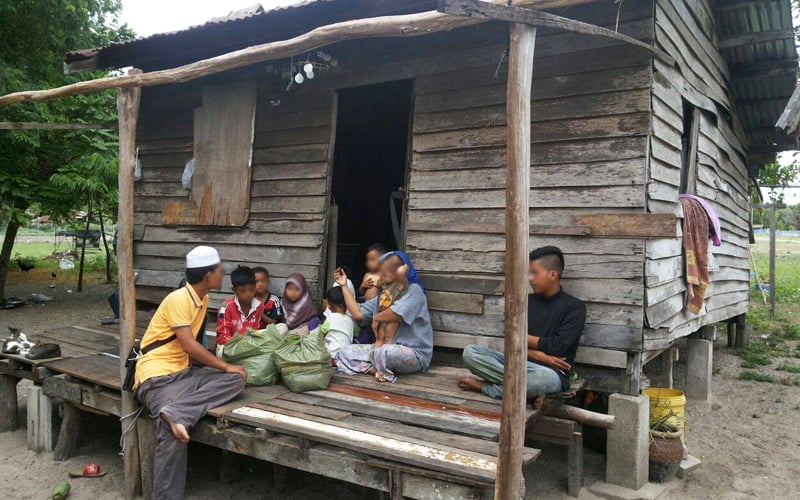
PETALING JAYA: A proposal to get corporates to help fund poverty-eradication programmes must be carefully assessed before it is implemented, according to an academic and a business group.
They agree that while it is a good idea, it can be a challenging undertaking and, even worse, scare off potential investors.
They were commenting on a proposal by The Poverty Eradication Foundation (YBK) chairman Zainal Abidin Sakom that corporates as well as NGOs and associations be made to contribute 1% of their annual profits to a government-managed fund to underwrite programmes to help the hardcore poor.
For a start, businesses would expect credibility, Monash University Malaysia economics professor Niaz Asadullah told FMT Business.
He said that apart from expecting a payback on the social front, profit-based entities such as businesses in what is dubbed the “1% club” also need to know that their money is handled responsibly.
He said the perception is that there has been little transparency in the design, implementation and evaluation of poverty programmes in Malaysia in the past.
“We have had numerous initiatives but little hard evidence on what works and what doesn’t in the Malaysian context,” Niaz said.
For instance, he said, citizen groups did not have access to information on project-level performance and service quality.
Additionally, for the approach to be viable, “we must avoid a single focus on funding”, he said.
“Eliminating hardcore poverty is not just about spending another RM138 million on one-off cash transfers. It’s down to crafting programmes that can bring about sustained change in human capabilities and behaviour,” Niaz said.
He said a poverty eradication programme financed by the private sector could bring in the additional funds, while the involvement of industries could make such initiatives more innovative, encourage greater participation and be transparent.
“If the top 1% lead through contributions towards national poverty eradication efforts, others will feel obligated to reciprocate the gesture,” he said.
Foreign perspective
Malaysia-Australia Business Council vice-chairman Nordin Abdullah said such a move could be seen as changing investment conditions.
“This can lead to legal action against the government by companies that have already put their money in Malaysia, and this will mean a loss of reputation for the country,” he told FMT Business.
Nordin, who is also the Australian Asean Chamber of Commerce vice-president, said the plan could end up being counter-productive.
“Malaysia currently enjoys a reputation of being a stable investment destination that can maintain investor-friendly policies,” he said.
He said contributions to the domestic economy should be in the context of job creation, development of local SMEs and provision of infrastructure.
“It’s this ecosystem that yields real results in terms of sustainable development and poverty eradication,” he said.
Nordin said Australian public-listed companies place great importance on the social contract, especially in areas such as community engagement, transfer of technology, building community infrastructure, vendor development, funding for research and development, as well as scholarships.
In Malaysia, he said, the challenge is determining how to sustainably drive economic development in sectors and geographic locations that require assistance.
“For Australian and other foreign investors, the best option is to jointly develop specific on-ground projects that can be directly monitored and implemented, with poverty-eradication objectives and governance standards in place,” he said.
“It is hard work, and there are no easy fixes.”
In articulating the proposal, Zainal also pointed out that Prime Minister Anwar Ibrahim had mooted a similar idea when he was the finance minister in 1996.
In June, Anwar said the entire government machinery would be asked to work together to eradicate hardcore poverty this year.
Data shows that the number of hardcore poor households in Malaysia had dropped from 124,744 to 118,217 in the five months leading up to May 15. A household with a monthly income of RM1,169 is considered hardcore poor. - FMT



No comments:
Post a Comment
Note: Only a member of this blog may post a comment.